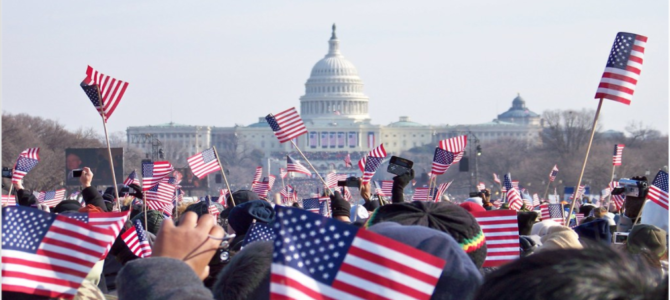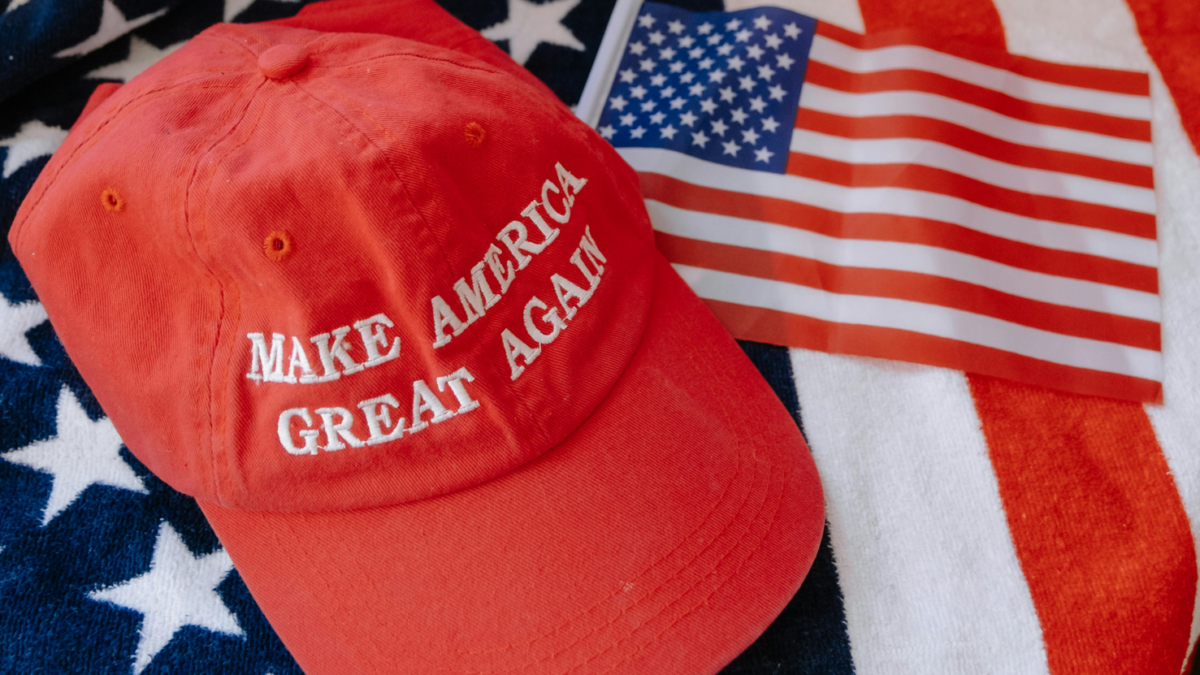
Political polarization has become an encompassing force in American society. Football games, an all-American staple of Sunday afternoons, are now home to displays of political activism. Movies frequently feature overtly political sentiments, and streaming services like Netflix seek to influence our sexual and racial attitudes with borderline pedophilic films like “Cuties” and derisive propaganda like “Dear White People.”
The Olympics, historically an opportunity to celebrate our country’s successes, has been turned into a forum for anti-American athletes who turn their back on the flag or pledge to burn it on stage. Once the preeminent cornerstone of American society, a wide array of churches now advertise their stances on controversial political issues and pay homage to the secular religions of our time, hanging pride flags and Black Lives Matter banners next to their crosses. Universities push anti-American, Marxist ideologies and critical race theory has seeped into elementary school classrooms.
In a time virtually all major institutions have been politicized and weaponized by the left, Americans desperately need the opportunity to bond around shared values, experiences, and history, especially if we want any hope of bridging the chasm that exists between the political and social factions in this country.
In a coherent society, Independence Day would provide such an opportunity, but the far-left’s anti-American response to the 4th of July proves that patriotism too has been thoroughly politicized and identified as an obstacle to their control. Rather than observe Independence Day as a time to celebrate America, many prominent voices on the left have taken the opportunity to indict America as a fundamentally and systemically racist country.
In a brazen attempt to delegitimize both the moral character of our founding and America’s current existence, Rep. Cori Bush claimed in a tweet that American freedom is exclusively “for white people” and that “This land is stolen and Black people still aren’t free,” being sure to subtly slight white people in a petty display of wokeness with the lowercase “w,” while spelling black with a capital “B.”
When they say that the 4th of July is about American freedom, remember this: the freedom they’re referring to is for white people.
This land is stolen land and Black people still aren’t free.
— Cori Bush (@CoriBush) July 4, 2021
Rather than celebrate the great advances that America has made since our founding, Rep. Maxine Waters also used the 4th of July as an opportunity to imply that America is a white supremacist nation, tweeting “the Declaration of Independence says all men are created equal. Equal to what? What men? Only white men?”
July 4th… & so, the Declaration of Independence says all men are created equal. Equal to what? What men? Only white men? Isn't it something that they wrote this in 1776 when African Americans were enslaved? They weren't thinking about us then, but we're thinking about us now!
— Maxine Waters (@RepMaxineWaters) July 4, 2021
That sitting congresswomen use their platforms to argue that America’s land is stolen and that our nation’s founding and very existence is morally illegitimate is not only disgraceful, it is a harrowing sign of immense national decline. Those who hate this country cannot be entrusted with the power to lead it.
Meanwhile, Democrat Rep. Ayanna Presley took a more nuanced approach by enthusiastically commemorating Juneteenth on her personal Twitter while only mentioning the 4th of July on her staff-managed account, where she implored her followers to “celebrate Independence Day by recommitting to the work of addressing systemic injustices.”
Have a safe Fourth of July and remember: dissent is patriotic.
Let’s celebrate Independence Day by recommitting to the work of addressing systemic injustices and building community.
— Congresswoman Ayanna Pressley (@RepPressley) July 4, 2021
Former secretary of labor, current University of California at Berkeley professor and co-founder of Inequality Media Robert Reich echoed a similar sentiment, saying in a 4th of July tweet that he is especially grateful for “Every American who still believes we can overcome our past to build a society that works for all.”
This July 4th I am especially grateful for:
—Organizers who are dedicated to fighting racial and economic injustice.
—Volunteers who got millions of people to the polls.
—Every American who still believes we can overcome our past to build a society that works for all.
— Robert Reich (@RBReich) July 4, 2021
Rather than approaching American history with nuance, Reich preaches the need to “overcome our past,” a phrase that frames our entire history from founding to present as something to be categorically ashamed of. For Reich and those who subscribe to this line of thought, there can be no positive identity associated with being an American, but only in overcoming America. For them, our legacy is something to be conquered, not conserved.
Patriotism then is not an honorable display of loyalty to one’s nation and its traditions, but a reactionary, perhaps even bigoted impulse to maintain the oppressive systems and norms that Reich says we must “overcome.” Such intense arrogance and spite have led those who reject America’s history to the conclusion that the wisdom of previous generations should be thrown out with their flaws, and that those in our time, our opinions perfectly molded by modern egalitarianism, have found the answers that our priors were simply too bigoted to realize.
This divide is not relegated to left-wing elites in Congress, academia, or media, however. A story from The New York Times titled “A Fourth of July Symbol of Unity That May No Longer Unite” detailed the telling experience of Peter Treiber Jr, who has an American flag painted on the side of his truck and lives in Southold, New York, a town of just more than 20,000. Treiber Jr. explained that he faced difficulty when he tried to sell his produce at a farmer’s market, with one customer remarking “You know, I wasn’t so sure about you, I thought you were some flag-waving something-or-other.”
Once considered a value on both sides of the political spectrum, patriotism is now considered, perhaps rightfully so, a distinctly conservative tendency.
The 4th of July is dedicated to celebrating America, but for many on the left, America isn’t worth celebrating. More significant than any disagreement on matters of policy or party is the divide between those who see America as a beautiful nation with a distinct culture, value set, history, and way of life that are worth preserving, and those who view America as an illegitimate country, built on stolen land and founded by white supremacists that must be reshaped by progressives and “anti-racists.”
For those who belong to the former group, the 4th of July is a time to rejoice and commemorate our nation’s founding and the sacrifices that so many across generations have made for the sake of our country. For the latter, holidays like Independence Day serve as opportunities to rehash history to engage in grievance politics by slandering the very same people so many Americans believe are worth celebrating. It’d be difficult to describe this as anything other than an irreconcilable difference.
The nation’s elites have established patriotism itself as a political matter, dividing the populace on the most fundamental question of what and who we are as a nation. This conflict is one of the defining struggles of our time. The side with both the most compelling answer to this question and the drive to advocate for it will define how we view our history and the course we chart for our nation’s future.







